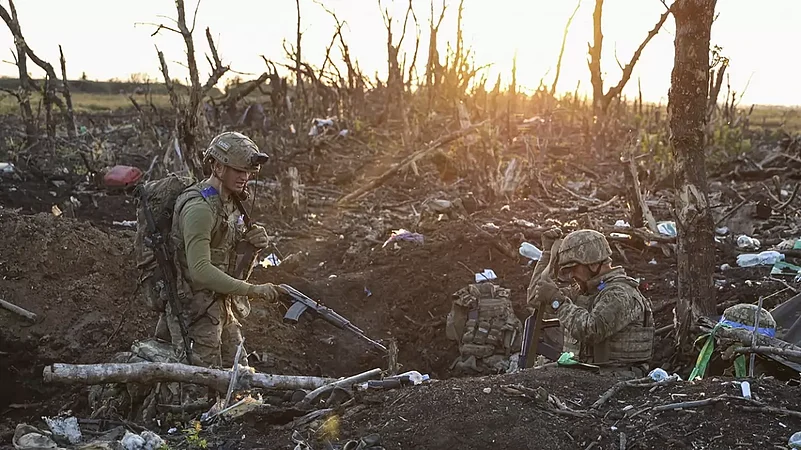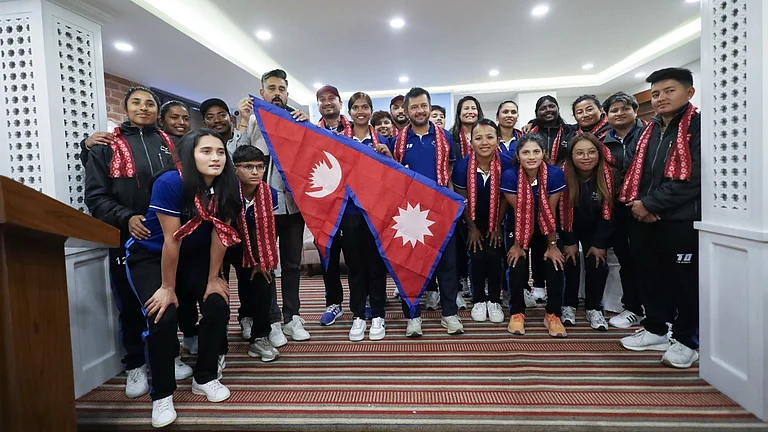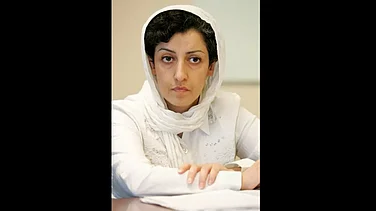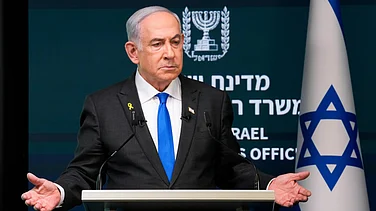As a devastating war unfolds between Israel and the Palestinian extremist group Hamas, another war a few thousand kilometres north between Ukraine and Russia entered the 594th day. Moscow’s invasion began with pre-dawn missile strikes on cities all over Ukraine on February 24, 2022. As of now, the Russian military has taken control of large parts of Ukraine, occupying nearly 20 per cent of the country, including major cities like Kherson, Mariupol, Donetsk, Kherson, Luhansk and Zaporizhzhia. However, Ukrainian forces have refused to back down. This month, they have been widening their breach in Russia’s defences in the Zaporizhzhia region.
The Russia-Ukraine war is four months away from its two-year anniversary with troop casualties on both sides touching 500,000, aside from thousands of civilian lives lost and mass destruction caused in residential areas and vital infrastructure that continue to sow fears among the people living there. Russia’s recent attack on Ukrainian village of Hroza in the northeast Kharkiv region wiped out more than 15 per cent of its 300 population. The cafe, which had reopened for the wake, was obliterated and whole families perished. Ukraine President Volodymyr Zelensky called the missile strikes “brutal” and accused Moscow of “genocidal aggression”.
According to a United Nations report, the war has caused millions of Ukrainians to fall below the poverty line as the situation worsened with the broad economic and social harm caused by Russia’s invasion. Russians on the battlefield outnumber Ukrainians by almost three times and Russia also has a bigger population to replenish its ranks from.
Russia has been repeatedly criticised by the West for launching its offensive against Ukraine and was ousted from the UN Human Rights Council. Today, at the secret ballot taking place at the UN General Assembly, Russia is hoping to be re-elected. The 193-member assembly will be electing 15 members to the Geneva-based Human Rights Council, with candidates put forward by the UN's five regional groups.
Russia contends that it has private support in developing countries that are weary of the West’s funding for Ukraine. However, New York-based Human Rights Watch said last week that Russia and China are unfit to serve on the UNHRC. “Every day, Russia and China remind us by committing abuses on a massive scale that they should not be members of the UN Human Rights Council,” said Louis Charbonneau, UN director of Human Rights Watch.
The UN human rights office has also expressed deep concern over Moscow's "mass conferral" of Russian passports after reports that residents were being denied access to essential public services if they did not take up Russian citizenship and were at greater risk of arbitrary detention in the Ukrainian territories it controls.
Russia's President Vladimir Putin has repeatedly painted his enemies in Ukraine as “neo-Nazis,” even though the country has a Jewish president who lost relatives in the Holocaust and who heads a Western-backed, democratically-elected government. The Holocaust, World War II and Nazism have been important tools for Putin in his bid to legitimise Russia's war in Ukraine, but historians see their use as disinformation and a cynical ploy to further the Russian leader's goal.


























